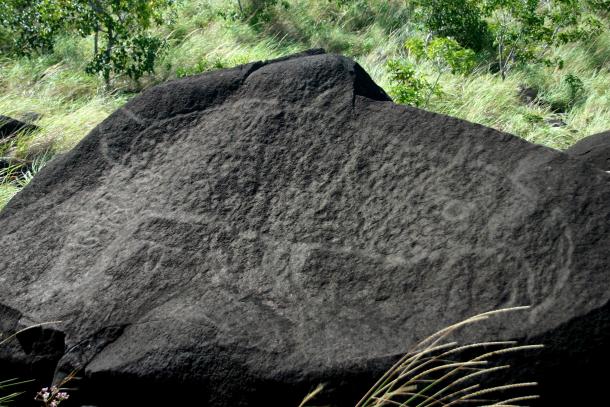The edge of the cloud forest beneath Volcán Cacao (elevation: 1,659 meters or 5,442 feet)
In a word, the biological and human complexity of ACG and its surrounding communities is complex. In addition to being a globally significant “biological hotspot” – a place that is crammed with unique wildlife, plants and fungi – ACG is also very much a story of human intervention and perturbation. Very little of ACG is pristine in the sense that it is has never experienced human influence. Pottery shards and arrowheads have been found as high as 1,200 meters (4,000 feet) on the side of Volcán Cacao, and beautiful, mysterious petroglyphs can be found on the west side of Volcán Orosi. Spanish colonization presaged extensive deforestation, eradication of indigenous peoples, and an era of cattle ranching and cultivation on the drier Pacific side of today’s ACG. Yet parts of ACG are truly pristine, such as the cloud forests and remnant patches of primary forest, while the rest of ACG and its species are on a vigorous path to restoration, steadily “rewilding” themselves with the benefit of time and careful conservation management. Undoubtedly, the existential threat of climate change—more severe droughts and storm events—is affecting many species groups, both terrestrial and marine. For those species that can move about, ACG provides a big enough landscape to support their adaptation. But we also know that we will lose species in a too-rapidly changing climate; many highly specialized and highly integrated species assemblages will simply unravel. In the subpages here, you can learn much more about the complexity of ACG, both its rich biological heritage and the role of people on the landscape and in the evolution of ACG’s biodevelopment.

Pre-Columbian tapir petroglyph found in ACG.